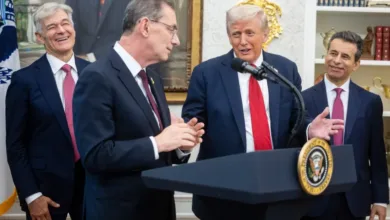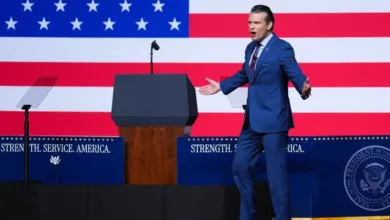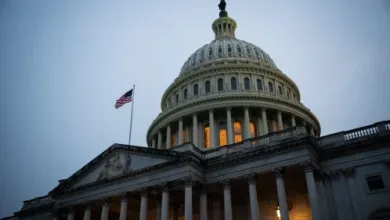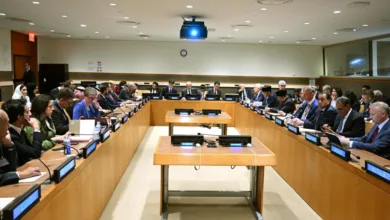Indian Truck Driver Florida Crash Pauses US Work Visas

A recent truck accident in Florida involving an Indian driver has triggered widespread concern and led U.S. authorities to temporarily review work visa policies. The crash, which occurred on a busy interstate, left multiple vehicles damaged and raised questions about transportation safety, visa regulations, and the recruitment of foreign workers in critical industries. As the investigation unfolds, the incident has quickly become a focal point in Breaking News and discussions surrounding U.S News.
The Florida Crash: An Overview
According to local authorities, the accident took place late Tuesday afternoon when the truck, transporting goods across the state, lost control and collided with several vehicles. Emergency services responded immediately, rescuing trapped passengers and securing the crash site. Fortunately, fatalities were avoided, but several individuals sustained serious injuries.
Eyewitness accounts describe a chaotic scene, with vehicles overturned and debris scattered across the highway. Traffic authorities had to close multiple lanes, causing significant disruption. The crash quickly drew attention due to the driver’s nationality and its implications for ongoing work visa programs.
Impact on Work Visa Policies
Following the crash, U.S. immigration authorities announced a temporary pause on the issuance of certain work visas for foreign truck drivers, particularly from India. Officials cited the need to reassess safety protocols, driver qualifications, and the vetting process for foreign nationals entering critical transportation roles.
This decision affects thousands of workers currently in the pipeline and has created uncertainty for both employers and prospective employees. Analysts note that the move may also influence discussions on labor shortages in the U.S. trucking industry, which has faced growing demand amid supply chain pressures.
Historical Context of Foreign Drivers in the U.S.
Increasing Reliance on International Drivers
Over the past decade, the U.S. transportation sector has increasingly relied on foreign drivers to fill labor gaps. India, in particular, has been a significant source of skilled truck drivers due to specialized training programs and agreements with U.S. companies.
Previous Incidents
While the majority of foreign drivers operate safely, previous accidents have occasionally sparked debates about training standards, regulatory oversight, and integration into U.S. traffic systems. The Florida crash adds to a pattern that has prompted policymakers to examine the broader system.
Government Response
Federal Level
The Department of Transportation and the Department of Homeland Security jointly reviewed the crash, emphasizing that public safety remains the top priority. The temporary suspension of certain visas is intended to allow comprehensive analysis of recruitment, training, and licensing procedures.
State Level
Florida authorities have increased inspections of trucking companies and reinforced compliance with safety regulations. Additional measures include mandatory driver evaluations and stricter vehicle maintenance requirements.
Implications for the Trucking Industry
The U.S. trucking industry is vital to the economy, transporting billions of dollars worth of goods annually. Any disruption in driver availability or regulatory changes can have ripple effects across supply chains.
Employers are concerned that stricter visa controls could exacerbate existing driver shortages, while unions advocate for more rigorous safety standards. The Florida crash underscores the delicate balance between meeting labor demands and ensuring public safety.
International Reactions
India has expressed concern over the temporary visa suspension, emphasizing the importance of continued cooperation in labor exchange programs. Indian officials are engaging with U.S. counterparts to ensure fair treatment of drivers and the resumption of visa processing once safety reviews are complete.
Global media has reported extensively on the incident, highlighting both the immediate consequences and the broader implications for international labor mobility. Coverage across World news portals underscores how local accidents can trigger international policy discussions.
Expert Analysis
Transportation safety experts suggest that accidents like this are multifaceted, involving factors such as road conditions, vehicle maintenance, driver fatigue, and training adequacy. Analysts stress that temporary visa suspensions are precautionary measures rather than punitive actions against foreign workers.
Safety and Compliance Measures
Experts recommend:
-
Comprehensive driver training programs.
-
Regular vehicle inspections and maintenance audits.
-
Monitoring and regulation of work hours to prevent fatigue.
-
Enhanced communication between state and federal authorities.
Implementing these measures can reduce the likelihood of future incidents and support safe integration of international drivers into U.S. transportation systems.
Broader Policy Implications
The Florida crash has reignited discussions on work visa policies across sectors. Beyond trucking, policymakers are considering how to balance labor needs, public safety, and international partnerships.
Labor Shortages and Economic Impact
The temporary visa pause could affect logistics, manufacturing, and retail sectors reliant on timely deliveries. Experts warn that delays in addressing labor shortages may lead to supply chain disruptions, increased costs, and economic consequences.
Diplomatic Considerations
The incident has potential diplomatic ramifications. Maintaining strong ties with India requires careful handling, ensuring that safety concerns do not inadvertently damage long-term partnerships.
Public and Media Reaction
The crash has dominated Breaking News coverage in the U.S., with extensive reporting on both the accident itself and the subsequent visa suspension. Editorials emphasize the need for systemic reforms rather than attributing blame to individual drivers.
Social media discussions reflect a mixture of concern for public safety and support for fair treatment of foreign workers, highlighting the complexity of the issue.
Potential Solutions
Policy Recommendations
-
Streamlining safety and training standards for international drivers.
-
Implementing robust monitoring systems for work visa compliance.
-
Encouraging partnerships between U.S. companies and foreign training institutes.
-
Promoting awareness campaigns on road safety and best practices.
By taking proactive steps, authorities can minimize risks while preserving the benefits of international labor programs.
Industry Initiatives
Some trucking companies have already begun offering additional safety training and mentoring for foreign drivers. These initiatives demonstrate a commitment to both safety and workforce development.
Conclusion: Balancing Safety and Labor Needs
The Florida truck crash involving an Indian driver highlights the interconnected nature of transportation, labor policy, and international relations. While immediate attention is on safety and visa reviews, long-term solutions require collaboration between government agencies, industry stakeholders, and international partners.
As investigations continue, policymakers must balance public safety with labor needs, ensuring that temporary disruptions do not lead to lasting economic or diplomatic consequences. The incident serves as a reminder of how a single accident can have far-reaching effects across News, U.S News, and World spheres.




